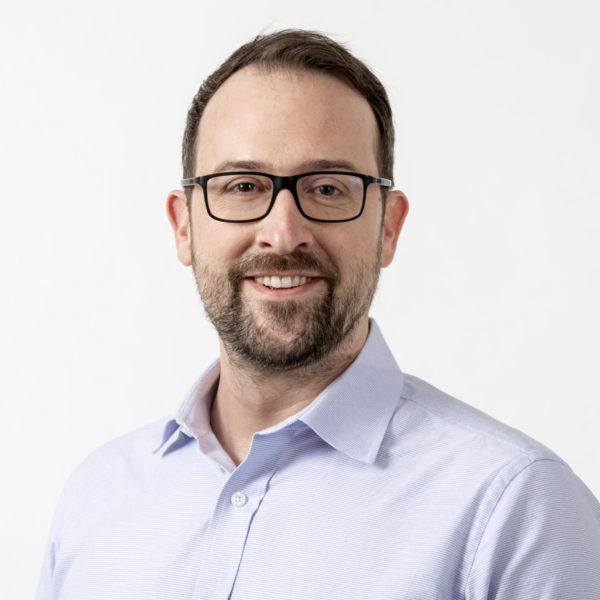“If you are passionate about something, you will be able to cope with any challenge!”
Dr. Jan Mauer has a PhD in Genetics and joined BioMed X Institute in 2018 as group leader of Team RSC. His team is seeking to identify key molecular mechanisms that generate mRNA splicing abnormalities in cancer. We asked him about his career path, obstacles he had to overcome and his advice for young researchers.

BioMed X: “What did you study and why?”
Jan Mauer: “I studied biology because already as a child, I developed a strong fascination for nature and the biodiversity on our planet. Natural sciences, in particular biology and chemistry, were my favorite topics in school, and I had very inspiring teachers in these subjects. Studying biology was thus a logical choice since it covers all aspects of natural sciences. I was initially very fond of the macroscopic aspects of life. In fact, I spent a semester researching marsupial behavior in the Australian outback. However, reality kicked in soon and I did absolutely not enjoy sitting in the bushes for days, waiting for something exciting to happen with the little critters. Also, I realized more and more that countless treasures of life are hidden at a microscopic level. This is why I ultimately decided to pursue my Diploma and Ph.D. in molecular biology and genetics.”
BioMed X: “What was your biggest achievement so far? What was the biggest challenge? Any lessons you had to learn?”
JM: “My biggest scientific achievement, which is also linked to my biggest challenge, certainly came with my move to NYC. During my PhD and postdoc at the MPI for Metabolism Research in Cologne, I mainly worked with genetically modified mouse models, trying to understand how the immune system connects inflammatory and metabolic processes in health and disease. Although this was a valuable research experience, which formed me as a scientist, at a certain point I did not feel scientific fulfillment anymore. Thus, I decided to gear my research focus away from animal studies towards RNA biology, specifically big data analysis and transcriptomics. Having been a bench scientist my whole career, it was very challenging to learn computational analysis from scratch, always feeling pressured by the time constraints of my DFG fellowship. Additionally, the general atmosphere in my host lab was completely different from what I was used to in Cologne. Nevertheless, I had a very successful time in NYC, both personally and professionally, and was able to publish my findings within the first two years of my stay abroad. The lessons I learned from this is that if you are passionate about something, you will be able to cope with any challenge. Persistence combined with creative thinking and a bit of luck eventually leads to success.”
BioMed X: “What are in your opinion the key steps for a young PhD?”

JM: “In my opinion, the topmost important thing for scientists is to educate themselves broadly from the beginning. Learn as many techniques as you can, and you will be able to tackle a variety of scientific problems in the future. Only then, you will be able to make an informed decision on what to do with your professional life. Another thing is to not confuse working hard with working all the time. Being a researcher demands great effort of concentration, but not necessarily long hours of routine work. Take time to relax and to pursue non-scientific interests as well. But also know when it’s necessary to invest extra time into your work. You wouldn’t want to miss out on impactfully publishing your most exciting discoveries because the competition was faster.”
BioMed X: “Why did you accept a position at BioMed X?”
JM: “The concept of bridging academia and industry sounded very exciting to me. Like many scientists, I was always torn between an academic and an industry career. BioMed X promised to serve as a platform to explore both paths with limited drawbacks. I also liked the energy and excitement during the bootcamp-style recruitment and was generally impressed by the insight and knowledge of the industry partners.”
BioMed X: “What are your personal benefits working at BioMed X?”
JM: “I was able to get insight into the thought processes of pharmaceutical industry partners.
Working at BioMed X also fostered my leadership skills and allowed me to experience the excitement of working with my team members. Moreover, I had the opportunity to extend my scientific network and to get a solid overview of pharmaceutical research in the Rhein-Neckar area.”
BioMed X: “Do you think that research at novel innovation hubs like BioMed X can compare to research at academia and pharma industry?
At the current stage, all innovation hubs that work in a similar way like BioMed X Institute have to prove that they offer significant scientific advantages compared to purely academic or pharmaceutical institutions and most of all that their model is scientifically sustainable. There are many challenges, that need to be tackled. To mention an example here: When a team leaves BioMed X, there is always a certain knowledge drain. How to handle this and to always keep a level of consistency would surely improve this innovation hub model.
For BioMed X, I expect a strong future performance regarding the diversity of research topics and development of the institute’s infrastructure.
BioMed X: “What advice would you give your younger self?”
JM: “Realize earlier when it is time to move on with your career.”
